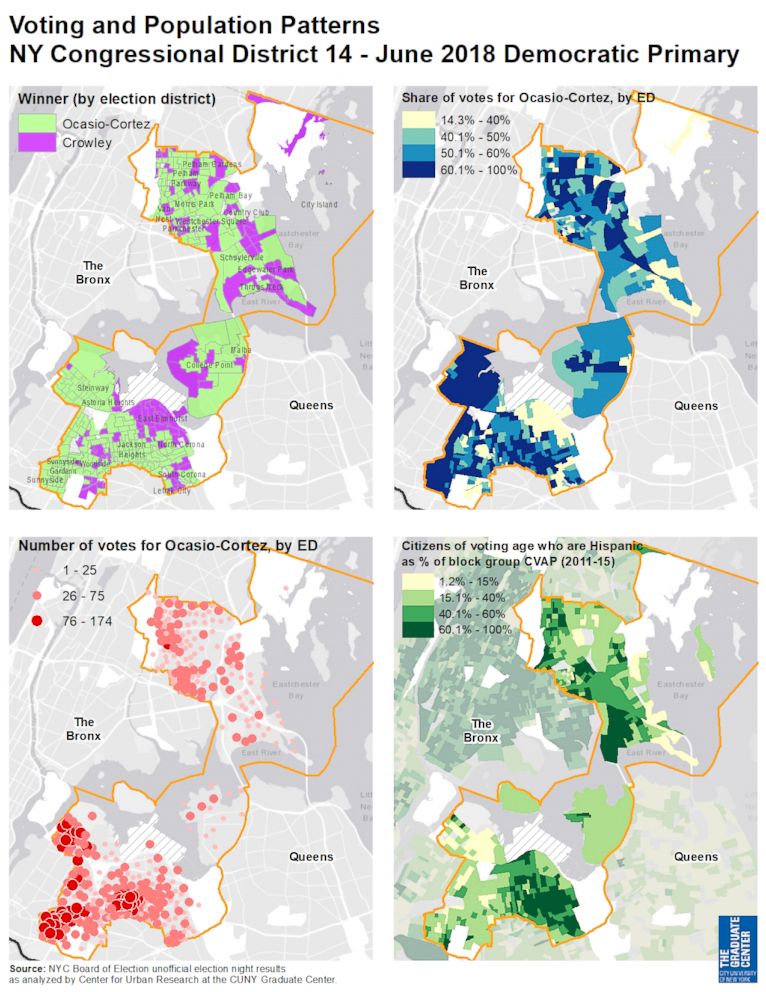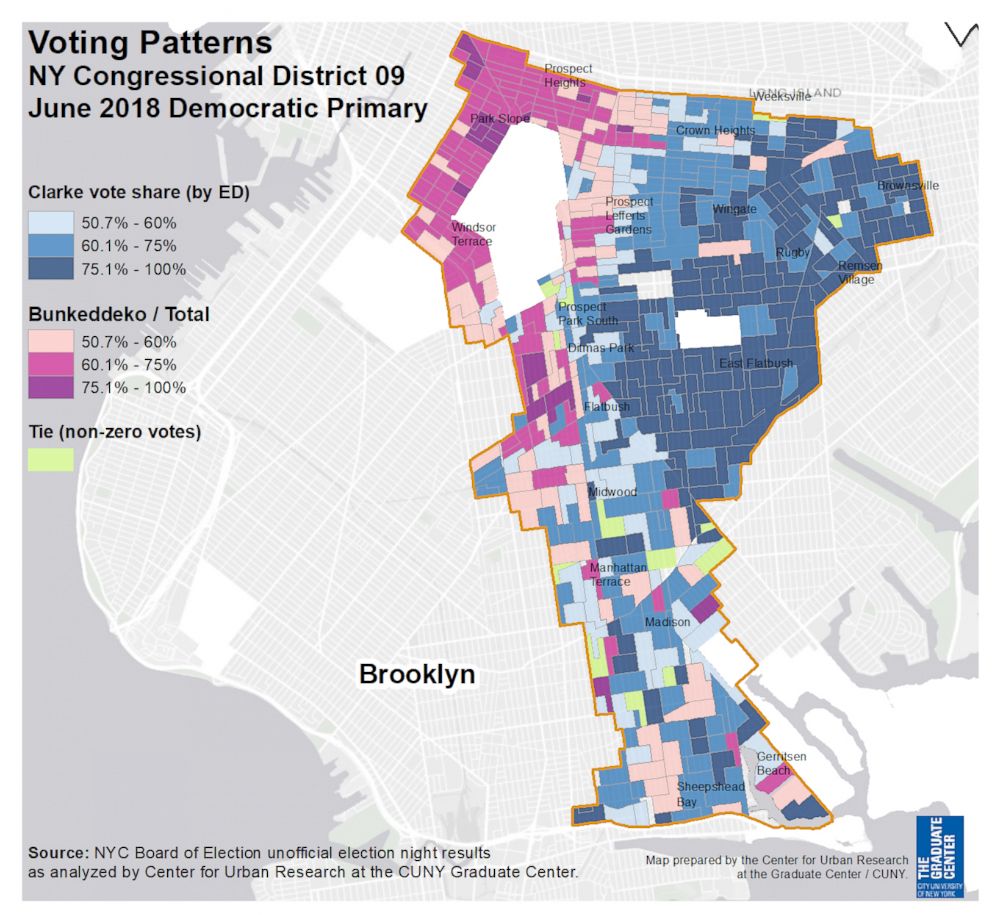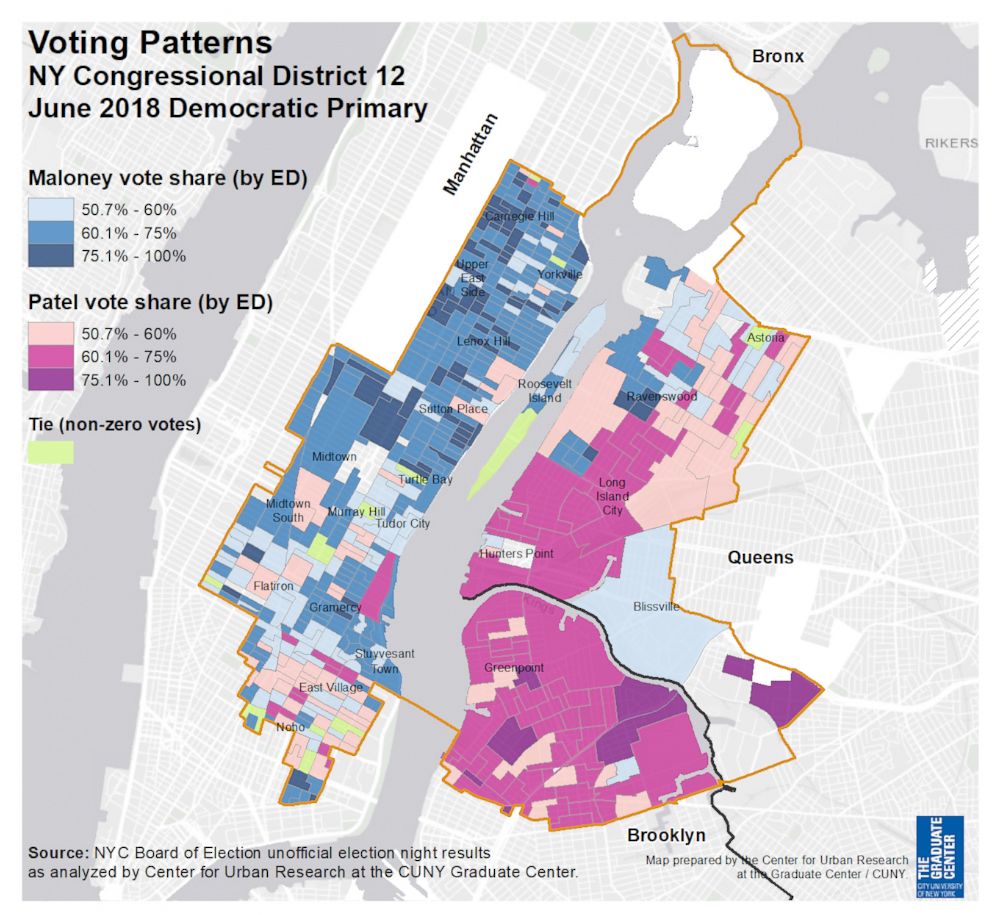Progressive Ocasio-Cortez backers tout economic justice platform, anticipate future upsets
“...Neoliberal Democrats are allergic to the word ‘class,'” Maria Svart said.
Alexandria Ocasio-Cortez’s Tuesday victory over fourth-ranking House Democrat Joe Crowley has prompted extensive debate on whether her wide-margin win is a harbinger of more progressive upsets to come.
The victory by the first-time candidate “is not to be viewed as something that stands for anything else,” House Minority Leader Nancy Pelosi, D-Calif., said Wednesday.
But left-wing groups that supported her from the start have seen surges in membership, and claim that her working-class background and emphasis on economic justice played a central role in her win.

Steven Romalewski, a demographer at the City University of New York, told ABC News that Ocasio-Cortez’s strongest showing was in gentrifying and diverse districts of Queens such as Astoria, Sunnyside, and Jackson Heights, rather than largely Hispanic areas.
“She definitely got the most votes in areas that were not predominantly peopled with Hispanic citizens,” Romalewski told ABC News. Still, he said, “she won virtually everywhere throughout the district -- it wasn’t a couple of pockets here and there.”
Romalewski’s team found similar trends in Democratic primaries in the 9th and 12th Congressional Districts, where two young challengers lost to longtime incumbents. In the 9th Congressional District, Adem Bunkeddeko -- a 30-year-old community organizer who campaigned on lowering rents in Brooklyn -- lost by just under 1,100 votes to Rep. Yvette Clarke, D-N.Y.
Citing a “very similar pattern” to the Ocasio-Cortez's victory, Romalewski said these challengers saw a “groundswell of support” in diverse gentrified or gentrifying areas.
While demographers are analyzing preliminary results based on neighborhood turnout, it will be several months before the Board of Elections releases its official data about which voters showed up on election day.
Ocasio-Cortez made her appeal to first-time voters a key point of her campaign and voter-registration data can be expected to show that she performed strongly with voters close to her in age.

In the race, Ocasio-Cortez, who is a card-carrying member of the Democratic Socialists of America (DSA), heavily emphasized a platform of working-class solidarity, refusing corporate campaign funding and criticizing moneyed interests in politics, including most recently the use of private, for-profit detention centers to detain immigrants along the border.
Maria Svart, National Director of the DSA, described the Democratic establishment’s “unwillingness to reckon with class” as a key reason voters found the left-wing appeal to economic justice so appealing.
“A lot of neoliberal Democrats are allergic to the word ‘class,’” Svart told ABC News.
Noting that President Barack Obama was referred to on the left as the “deporter-in-chief,” Svart said, “just because someone is a person of color or a woman, does not mean inherently that they are going to have a politics that works.”

The message of economic justice appears to be paying off for the DSA.
The organization reached 40,000 dues-paying members as of Thursday, Svart said, up from 5,000 in November 2016.
The last time the DSA saw a similar jump was the month after President Trump was elected, Svart said, adding, however, that the post-Ocasio-Cortez surge was even more substantial.
“It’s really a testament to the fact that fear and anger is a powerful motivator, but hope is even more powerful," she said.
Ocasio-Cortez was promoted by a slate of other progressive groups, including Brand New Congress, a group of progressive organizers, Justice Democrats, a progressive political action committee that counts Young Turks founder Cenk Uygur among its founders, and Our Revolution, an outgrowth of Sen. Bernie Sanders’, I-Vt., 2016 presidential bid.
The candidate’s ties with her backers run deeper than standard endorsements.
In their final debate before the primary, Crowley asked Ocasio-Cortez whether, if he was nominated, she would support his candidacy. Ocasio-Cortez answered that it wasn’t her decision alone.
“I represent not just my campaign, but a movement,” Ocasio-Cortez said.
One of those groups, Justice Democrats, found and recruited her to run based in part on her support for left-wing economic policies such as a federal jobs guarantee and single-payer health care.
Alexandra Rojas, co-director of Justice Democrats, told ABC News that while categories of identity like race, ethnicity and gender matter and inform voters’ interests, recent progressive victories have the potential to transcend those lines by appealing broadly to the working-class.
“She’s so much more than her identity -- it’s about the policies she’s espousing,” Rojas said of Ocasio-Cortez. Rojas predicts more upset victories, pointing to Justice Democrat-endorsed candidates Kaniela Ing in Hawaii’s 1st District and Jess King in Pennsylvania's 11th District.
Of King, Rojas says, “She’s going to show that economic populism can win in Trump country.”




